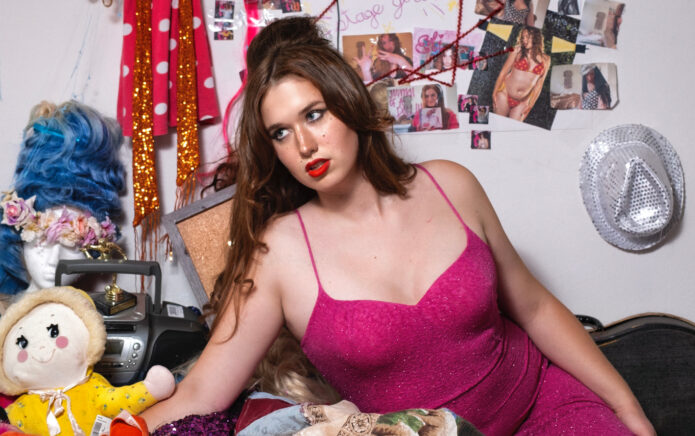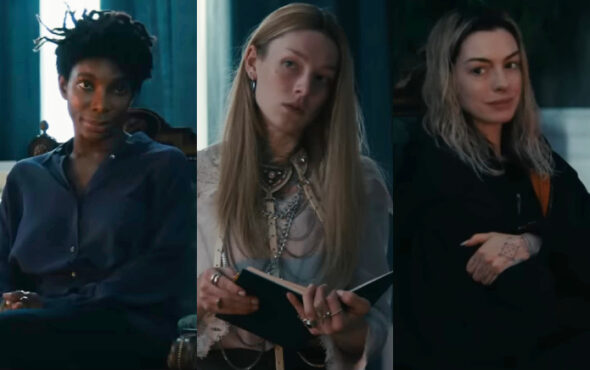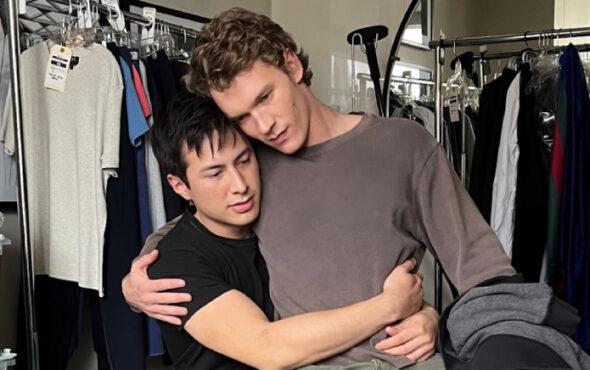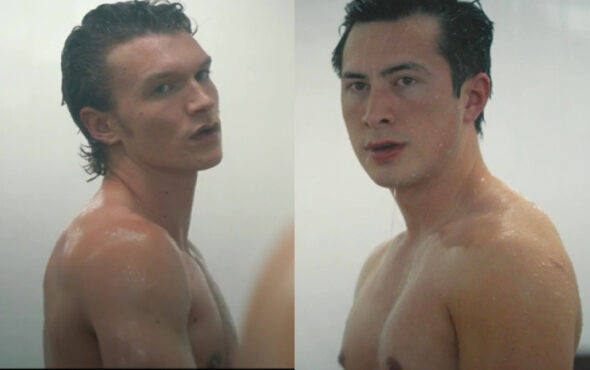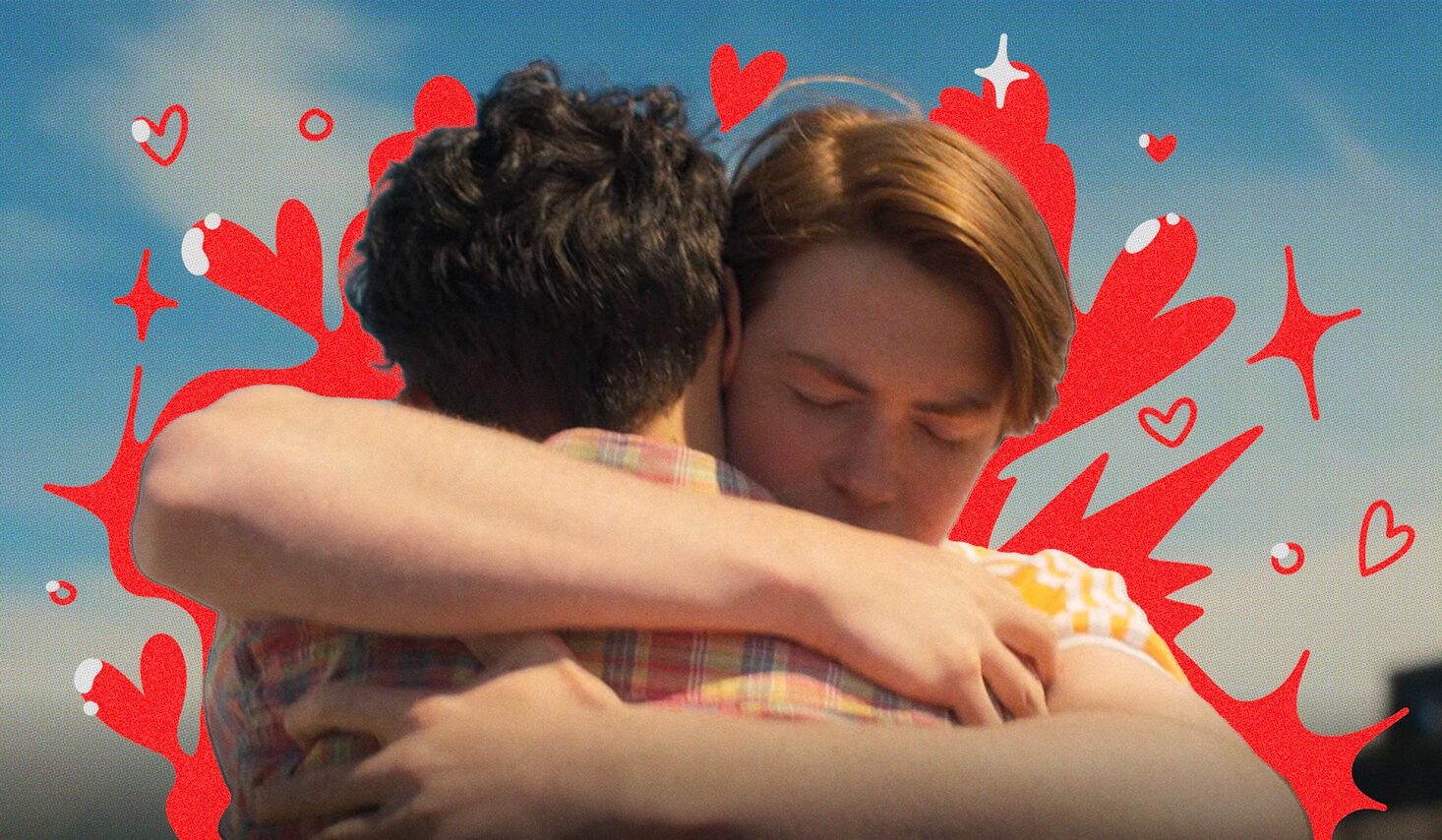
Who could hate Heartstopper? No, seriously – it’s like hating on puppies or, worse, Cher. Yet, despite the love season one received, not even the show’s delightful coming-of-age innocence could stop complaints from certain corners of the internet.
When Heartstopper first arrived on Netflix, people who hate joy grumbled that the world Alice Oseman has created is simply too wholesome. That teenagers — queer or straight — aren’t really this sweet and innocent in real life. But is the opposite of that any more realistic? Do we really need another Euphoria-type series that casts us back to the bygone days of vomiting in hot tubs and injecting opioids at school?
And, yes, there’s a middle ground, of course. A world where teenagers are just having regular sex rather than a hyper-Americanised TV show that gets off on shock culture. Heartstopper isn’t that show because it doesn’t need to be that kind of show. We still don’t see enough teenagers thriving in sweet, earnest crushes, aside from a few select examples, including Rowan Blanchard and Auliʻi Cravalho’s aptly named high school lovefest Crush. But when it comes to young queer people, that youthful tenderness couldn’t be more evident than in the heartfelt hugs shared by Nick and Charlie.
The hugs in Heartstopper are more than mere actions — they document a timeline of growing confidence and queer comfort. When Nick and Charlie first hug in season one, it’s because of how cuddly Charlie looks. Or at least, that’s what Nick says before the pair embrace. He’s right, of course, but there’s much more to it than that. This might sound a bit intense, and that’s because it is. At that age, the desire to be with the person you love really does feel like a life-or-death scenario. And yes, first kisses are significant, but not enough attention is given to the power a single hug can also hold, especially for young queer people who are unsure of themselves or not even out yet.
For Nick, it’s a lightbulb moment that envelops him with a warm, fuzzy feeling that he doesn’t yet fully understand. And for Charlie, who’s been with a boy before, Nick’s prolonged embrace suddenly suggests that there might be more to his crush than just a one-sided longing. In Nick’s arms, Charlie feels safe in a way he never did with Ben. And so begins a series of hugs that strengthen Nick and Charlie’s affection over the course of two seasons. These quiet moments resonate because they’re healing, both for Nick and Charlie — as well as for people watching back home.
It’s not just romantic hugs that figure into this either. Everyone in their friendship group, from Elle and Tao to Isaac, Tara and Darcy are all very touchy-feely throughout both seasons. They hug and hold hands every chance they get. In doing so, these young queer friends form a safe space in each other’s company that brings them closer together with the kind of love and validation that so many queer teens in real life still struggle to find.
When I was their age, I had no out gay friends to call my own. In fact, no one was out at school at all because everything bad or rubbish was deemed “gay” under Section 28, regardless of whether it was actually gay or not. All day, every day, I was constantly reminded of how much people hated anything or anyone deemed gay, so I did what countless other queer kids did back then. I shrunk down and hid the best parts of myself to try and avoid that word ever being thrown in my direction.
Did it work? No, of course not. I was a raging homosexual, even back then, yet still, I was on guard all the time, especially with other boys my age. One wrong move would confirm that they were right, that all those taunts were grounded in something real. And with that came the threat of isolation or even violence, much like Charlie faced in the events leading up to season one of Heartstopper.
I don’t have to tell you that being gay in situations where you don’t feel safe or comfortable is exhausting. There’s a constant tension, even if no one else in the room is aware of it. So hugging another boy, just as a friend or something more, was simply out of the question for me. Even sitting close to one, maybe touching knees or elbows, felt dangerous. Going so far as a full-blown kiss was just unimaginable at that age and it would be years before I felt comfortable enough to push through my own shame and actually go there myself.
Christian, aged 33, tells me how he draws strength from the show, even if it can be hard for him to watch at points: “I went to an all-boys boarding school in Germany and it was bad. I was one of those kids who couldn’t hide they were gay, no matter how hard I tried, so I was an easy target back then. The bullying got so serious that I had to move to a new school. It’s hard sometimes to hear Charlie talk about getting bullied on the show, but seeing the way Nick and his friends are there for him makes it easier, because no one stood up for me as a lost gay kid.”
There’s something extremely validating in watching two teenage boys be vulnerable and embrace each other without fear or shame in Heartstopper. It’s groundbreaking in fact, even now in 2023. I’ve seen plenty of gay kisses and gay sex scenes in my time, but never have I seen a simple hug celebrated with such unabashed joy on screen.
“Shows like the L word gave me my first dose of feeling like there might be a happy adult life for me as a queer person,” says Zoë, a super fan aged 27. “But I couldn’t exactly relate to the women having complicated relationships and casual sex. I was fifteen. I was secretly holding hands with friends at sleepovers and reading way too much into how long the hug with the girl I fancied lasted.”
“When I watched Heartstopper at twenty-six, I was transported right back to that moment; butterflies and anxious hope. It showed me something I never saw at the time: my own life. People like me, falling in love and figuring out their sexuality between the form room and the locker room.”
“I watched the first season three times in the week it came out, feeling a connection to it that I didn’t really understand; a mixture of nostalgia for my school years, affection for this wholesome depiction of queer love, and grief that I didn’t get the chance to experience things the way the characters did. My bisexuality was something that scared me; in part because I wasn’t ready for the hyper-sexualised version of it I saw in the culture around me. I needed someone to capture exactly what Heartstopper does: the epic feeling of falling in love from a hug.”
But to those who have missed the point, to those who still criticise Heartstopper’s lack of sex, just know that it’s not off the table completely. During the Paris trip, Nick and Charlie share a cute exchange where they say they’d like to take things further one day, but only when they’re both ready. “If you never wanted to do it, then I wouldn’t either,” says Nick in the kind of soppy, adorable, heart-melting moment that this show does so well. Why are they like this, eh?
So sex will almost certainly play a bigger role in Heartstopper later down the line, but not because the show’s detractors have demanded it. Because it’s a natural thing for two young men in love to consider as their love grows deeper.
With every kiss and every hug, whether they’re running to the beach, hand-in-hand, or embracing after Nick struggles with his family in season two, these smaller moments all add up to something huge, something indescribably tender and even life-changing. That’s true for Nick and Charlie, regardless of if or when sex comes into play, and it’s also true for fans, young and old, who have struggled to find their own joy through intimacy.
Happiness is often all-too-absent in our stories, especially when it comes to coming out, yet joy can and should be an integral part of being queer at any age. More than anything else, that’s why Heartstopper is loved so hard and so deeply by (almost) everyone. Both the show and the comic that it’s based on are euphoric and uplifting and exceptionally tender in their approach to young queer love, reminding us that our teenage selves are worthy of this too, no matter what age we might be now. And who could actually hate that, honestly?
